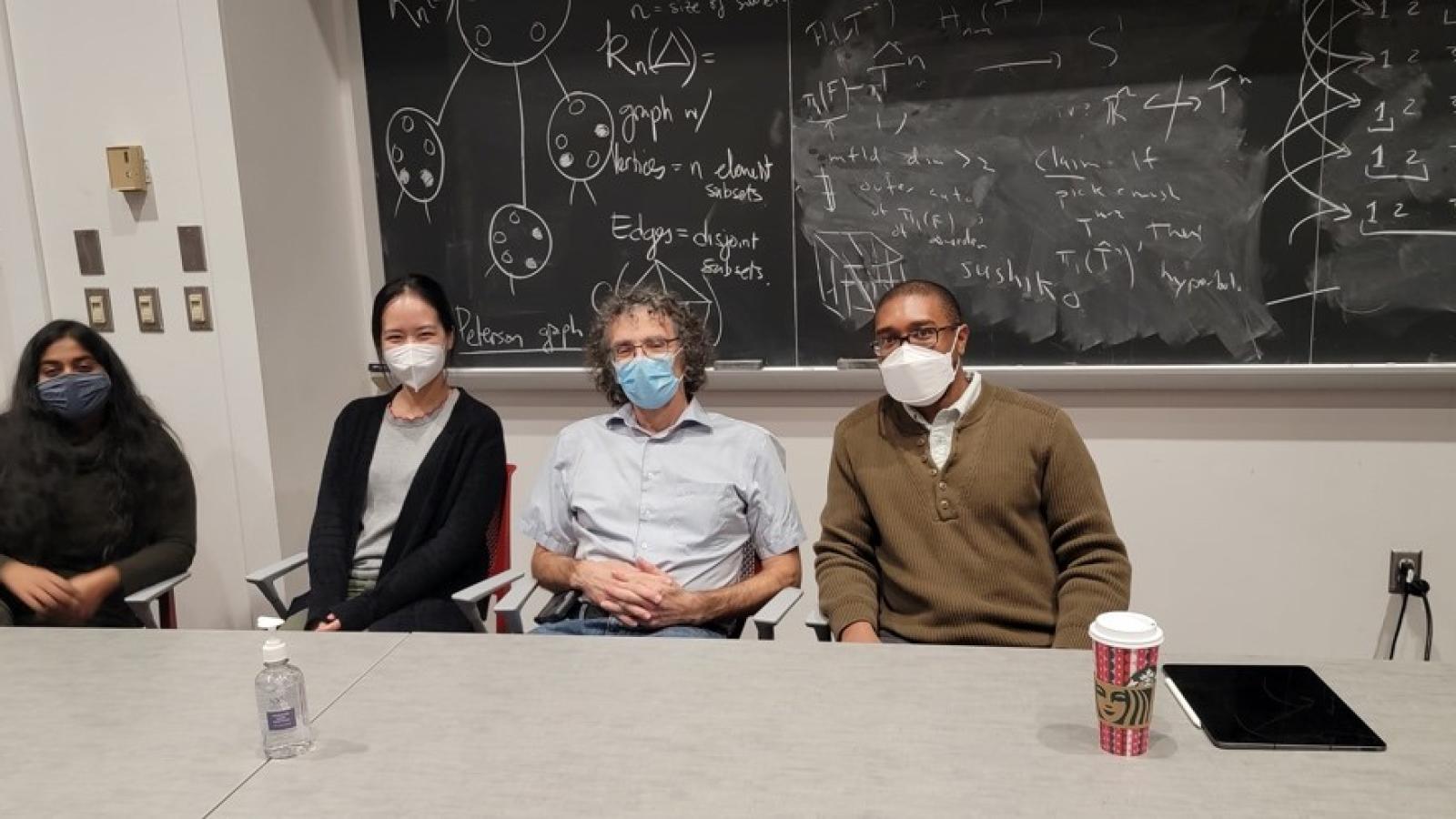
Ohio State’s Department of Mathematics has committed to studying its successes and shortcomings on issues of diversity, equity and inclusion. Those efforts have brought together an experienced group committed to the structural changes needed to make mathematics more accessible and welcoming to underrepresented students.
One concrete action taken in fall 2021 was the creation of Cycle, a year-round mentoring and professional development program created for underrepresented math majors. Cycle serves as a bridge to support the transition to college-level mathematics, providing exposure to various pathways into careers in both industry and academia. As a graduate-student led initiative, Cycle also builds mentorship capacity within the next generation of mathematicians.

Graduate student Kacey Clark leads this initiative. Cycle is organized by a committee, chaired by Clark, which brings together faculty, like Professors John Johnson and Daniel Thompson, with graduate student leaders like Will Newman and Nick Geis. Hannah Johnson, an undergraduate at Ohio State, is also on the committee. This committee, along with about 16 graduate student mentors, organizes activities to make math more welcoming to underrepresented students.
Some of those activities include events within the department, like Halloween and holiday department teas, or gathering for the Fields Institute’s livestreamed LGBTQ+ Math Day. But much of the most impactful work happens in the context of a one credit hour independent studies class for undergraduate mentees. In the fall session, the mentees focus on professional development activities, with training centered on diversity, imposter syndrome, bias and mental health. Some of it is learning useful technology, like preparing a curriculum vitae in LaTeX or using a computer algebra system. And some of it is handling practical issues like finding job opportunities, applying to those jobs or presenting one’s work out loud. Faculty are also involved in independent studies courses for Cycle, including faculty Luis Casian, John Johnson, Jennifer Park and Soumya Sankar, who comprised the recent diversity panel.
In the spring session, the mentees not only participate in the one credit-hour class, but also take part in research projects organized by the graduate student mentors. These projects include applied mathematics (like epidemiological modeling and topological data analysis) and theoretical work (like automorphisms of groups, category theory and number theory). The projects are created by the graduate Students, and the mentees choose the projects they are most interested in joining. At the end of the semester, the mentees summarize their work on a poster, and Cycle then culminates with a conference combining graduate student talks with a poster session highlighting the mentees’ work. Everyone is invited to this conference, which takes place at Ohio State on April 16, 2022.
With the success of the 2021-2022 inaugural session, the plan is to run Cycle again next year. Interested undergraduate participants are encouraged to contact mathcycle@osu.edu to learn more about upcoming opportunities.
In just one year, Cycle has already demonstrated growth. There were 10 student participants in fall 2021, but in spring 2022 there are 16 undergraduates enrolled in the one credit hour course. And other departments are pursuing similar projects. The Cycle model is based on an older program in physics at Ohio State called Polaris. That program includes a summer bridge component, where prospective physics majors are invited to campus before their first year. Polaris is itself inspired by the Access Network, an organization tying together projects on campuses across the country to create a more diverse and inclusive STEM community.
There are opportunities to expand this program going forward. One natural idea is to pair Cycle with Boundary, a pun on the cycles of boundaries of homological algebra. The proposed Boundary program would be an early arrival program like what physics offers. Funding is being sought for this now. And with increased interest, it is expected that the mentees who have completed this year of Cycle will return in future years as mentors, ultimately completing the cycle.
